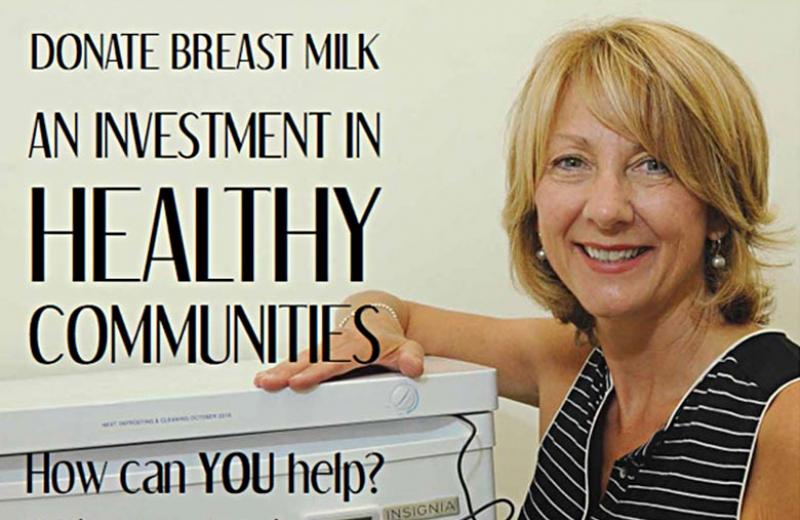Did you know that there are four human milk banks in Canada? We are lucky to have one in BC: the BC Women’s Provincial Milk Bank, in Vancouver. This milk bank provides screened, pasteurized donor breast milk to hundreds of tiny, sick, or at-risk babies every year. Babies in the Neonatal Intensive Care Unit (NICU) at the University Hospital of Northern BC (UHNBC) in Prince George are amongst these recipients.
Why is donor human milk important?
The gift of donor milk is life-changing for the smallest, sickest, and most vulnerable babies. When mothers are unwell, deliver their babies prematurely, or their babies are born sick, they may not have enough of their own milk in the first few days to provide for their own babies. The processed donor milk provides a safe, easy to digest first milk for their babies until they can grow stronger, and their mothers can provide enough of their own milk for their babies.
Human milk has been shown to reduce the incidence of Necrotizing Enterocolitis (NEC) in newborns. NEC can be life threatening to an already at-risk baby. Human milk is easy to digest, making it the best option for premature digestive systems.
What is a donor milk collection depot?
A milk depot is a place where eligible donors can drop off their breast milk donations, once they have gone through a screening process. These depots then send the milk to the provincial milk bank in Vancouver for processing. Currently, there are 24 donor milk collection depots in BC, based out of hospitals and health units. Northern Health has one depot in Prince George, at UHNBC, in the NICU.
Northern Health uses donor milk in the NICU
The NICU at UHNBC uses up to 3 litres of human donor milk for up to 15 babies a month. Most babies in the NICU need between 12ml (less than a tablespoon) to 500ml (2 cups) of donor milk a day.
Got milk?
Women who are interested in donating their milk are welcome to contact the BC Provincial Milk Bank to learn more.
Additional resources:
- How to become a donor (short video)
- Mothers: Will you donate your extra milk? (two-page information sheet)
- Donating milk (webpage)
- The BC Women's Provincial Milk Bank: call 1-604-875-3743 or email mbscreening@cw.bc.ca
(Co-authored with Katherine Schemenauer, Clinical Practice Lead at the University Hospital of Northern BC's Neonatal Intensive Care Unit)














Comments